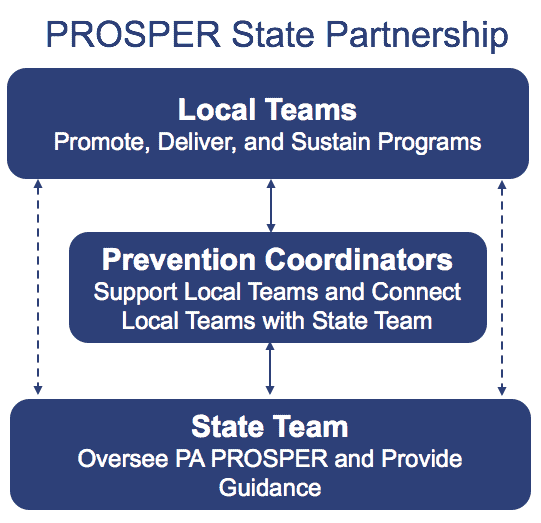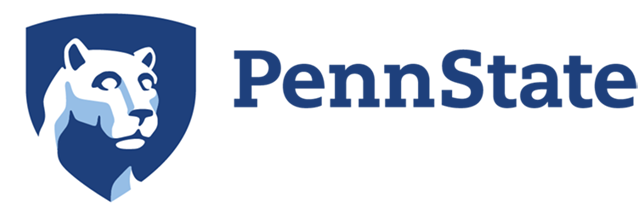About PROSPER
What is PROSPER?
PROSPER (PROmoting School-community-university Partnerships to Enhance Resilience) is a scientifically proven model for delivering high quality, universal evidence-based programs. The PROSPER model is a strong partnership between Penn State University, local PROSPER teams, university specialists and researchers. PROSPER teams are the “heart and soul” of PROSPER. Penn State Extension educators lead PROSPER teams made up of public school staff, community agency partners, volunteers, parents and youth. PROSPER teams plan, recruit for, implement, evaluate and sustain prevention programs for youth and families in their communities.
How does PROSPER work?
The PROSPER model is a partnership model that connects local teams with prevention coordinators and the PA state team. Local teams, with the support and technical assistance provided by the prevention coordinators, lead family-based and school-based prevention program efforts on the ground in their communities.


How does PROSPER support families?
The PROSPER model offers an effective way to reach families and provide important resources and skill building programs for parents/caregivers and their kids. Currently, PROSPER offers one family-based program, the Strengthening Families Program: for Parents and Youth 10-14 (SFP 10-14).

How does PROSPER support kids?
The PROSPER model offers an effective way to reach youth through their schools in order to provide them with important skills that help them navigate the challenges they will experience during adolescence. Currently, PROSPER offers one school-based program, Botvin’s LifeSkills Training (LST).

